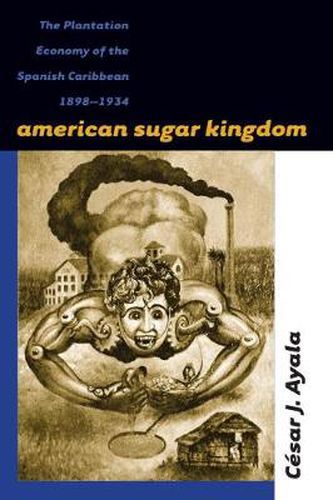Readings Newsletter
Become a Readings Member to make your shopping experience even easier.
Sign in or sign up for free!
You’re not far away from qualifying for FREE standard shipping within Australia
You’ve qualified for FREE standard shipping within Australia
The cart is loading…






Engaging conventional arguments that the persistence of plantations is the cause of economic underdevelopment in the Caribbean, this book focuses on the discontinuities in the development of plantation economies in Cuba, Puerto Rico, and the Dominican Republic in the early twentieth century. Cesar Ayala analyzes and compares the explosive growth of sugar production in the three nations following the War of 1898–when the U.S. acquired Cuba and Puerto Rico–to show how closely the development of the Spanish Caribbean’s modern economic and social class systems is linked to the history of the U.S. sugar industry during its greatest period of expansion and consolidation. Ayala examines patterns of investment and principal groups of investors, interactions between U.S. capitalists and native planters, contrasts between new and old regions of sugar monoculture, the historical formation of the working class on sugar plantations, and patterns of labor migration. In contrast to most studies of the Spanish Caribbean, which focus on only one country, his account places the history of U.S. colonialism in the region, and the history of plantation agriculture across the region, in comparative perspective. |This comparative study of the development of plantation economies in Cuba, Puerto Rico, and the Dominican Republic in the early 20th century shows how their economic and social class systems were shaped by the explosive growth of American sugar companies.
$9.00 standard shipping within Australia
FREE standard shipping within Australia for orders over $100.00
Express & International shipping calculated at checkout
Engaging conventional arguments that the persistence of plantations is the cause of economic underdevelopment in the Caribbean, this book focuses on the discontinuities in the development of plantation economies in Cuba, Puerto Rico, and the Dominican Republic in the early twentieth century. Cesar Ayala analyzes and compares the explosive growth of sugar production in the three nations following the War of 1898–when the U.S. acquired Cuba and Puerto Rico–to show how closely the development of the Spanish Caribbean’s modern economic and social class systems is linked to the history of the U.S. sugar industry during its greatest period of expansion and consolidation. Ayala examines patterns of investment and principal groups of investors, interactions between U.S. capitalists and native planters, contrasts between new and old regions of sugar monoculture, the historical formation of the working class on sugar plantations, and patterns of labor migration. In contrast to most studies of the Spanish Caribbean, which focus on only one country, his account places the history of U.S. colonialism in the region, and the history of plantation agriculture across the region, in comparative perspective. |This comparative study of the development of plantation economies in Cuba, Puerto Rico, and the Dominican Republic in the early 20th century shows how their economic and social class systems were shaped by the explosive growth of American sugar companies.